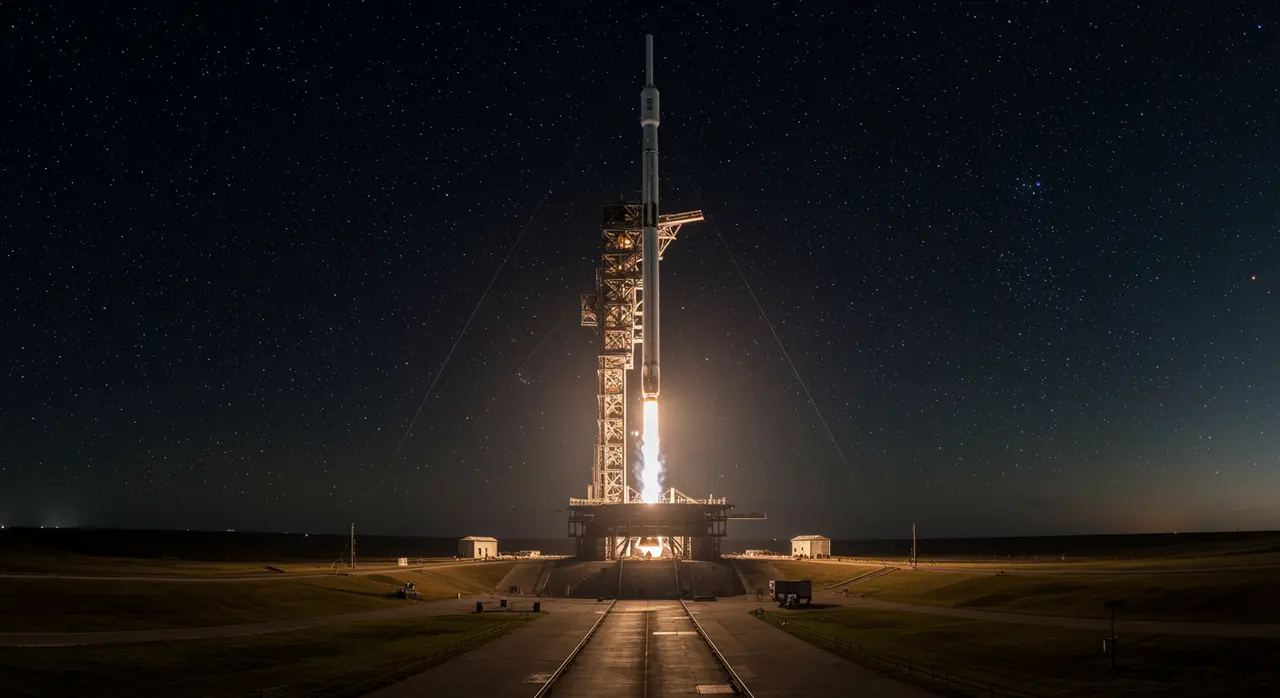SpaceX Fram2 Mission to Pioneer Polar Orbit with Amateur Crew and Groundbreaking Research
144 views
SpaceX's Fram2 mission is poised to make history as it propels four amateur astronauts into Earth's polar orbit, a trajectory never before traversed by a human crew. Launching Monday night at 9:46 p.m. ET from NASA’s Kennedy Space Center, the mission promises not only to push the boundaries of space exploration but also to delve into critical scientific inquiries aboard the Dragon spacecraft, which has already earned its place in the annals of space history.
Fram2: A Bold Leap Into Polar Orbit and Scientific Discovery
The Fram2 mission stands as a testament to the growing democratization of space exploration, with its crew comprising individuals who, despite their amateur status, are united by a shared commitment to advancing scientific knowledge. Chun Wang, Jannicke Mikkelsen, Eric Philips, and Rabea Rogge will embark on a journey that will last between three and five days, circling Earth in a polar orbit—a path that offers unique vantage points for observing phenomena such as auroras and the enigmatic STEVE (Strong Thermal Emission Velocity Enhancement).

At the heart of the mission lies a robust scientific agenda, with 22 research studies slated for completion during the flight. Among these, the first-ever X-ray conducted in space marks a groundbreaking milestone, potentially paving the way for new diagnostic methods in microgravity environments. The astronauts will also investigate the effects of exercise on human physiology in space and experiment with mushroom growth in microgravity, a study with implications for sustainable food production during long-term missions.
The crew's return will be equally significant, as their ability to perform unassisted tasks upon reentry is set to be rigorously tested. This aspect of the mission addresses a crucial question for future space exploration: how can astronauts maintain autonomy and effectiveness after enduring the physical and psychological rigors of space travel?
The Dragon spacecraft itself carries a legacy of innovation. Having previously flown on SpaceX’s Polaris Dawn mission, which achieved the first commercial spacewalk, the vehicle exemplifies the reusable technology that has become a cornerstone of SpaceX's approach to making space travel more accessible and sustainable. Fram2 will further test the capabilities of this spacecraft, reinforcing its role as a reliable vessel for ambitious missions.
The decision to embark on a polar orbit is not merely a technical feat; it is a deliberate choice that underscores the mission's dedication to expanding the horizons of human understanding. Polar orbits allow for comprehensive coverage of Earth's surface, offering scientists an unparalleled opportunity to study global phenomena from above. This trajectory also enables observations of regions often overlooked by equatorial missions, such as the polar ice caps and auroral zones.
The Fram2 mission arrives at a pivotal moment in the evolution of space exploration. As private companies like SpaceX continue to break barriers, the line between professional astronauts and civilian participants is becoming increasingly blurred. This shift raises profound questions about the future of humanity's relationship with space: Will the stars become a shared domain, accessible to all, or remain the preserve of a select few? Fram2, with its amateur crew undertaking professional-grade research, suggests that the former scenario may be closer than we think.
Beyond its scientific and technical achievements, Fram2 carries a symbolic weight. The mission's name, inspired by the Norwegian polar exploration ship Fram, evokes a spirit of adventure and resilience. Just as the original Fram ventured into uncharted Arctic waters, the Fram2 crew will navigate the uncharted expanse of Earth's polar orbit, forging new paths for those who will follow.
As the countdown to Monday night's launch begins, anticipation builds not only for the mission’s immediate outcomes but also for its long-term implications. Fram2 is more than a voyage into space; it is a step toward redefining what is possible, both for human exploration and scientific discovery. In the vast silence of Earth's orbit, four amateur astronauts will carry with them the hopes of a planet eager to understand its place in the cosmos.